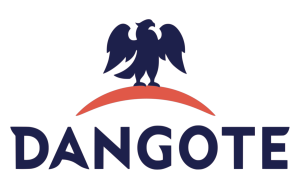Nigeria’s Telecom Access Gaps Decrease By 53%

Share this Post
The Executive Vice Chairman and Chief Executive Officer of the Nigerian Communications Commission (NCC), Prof. Umar Garba Danbatta has revealed that the number of areas in Nigeria without access to telecommunications services has decreased by 53.1% as of the end of 2022.

Dandatta who represented by the Head of Pre-Licensing at the Commission, Usman Mamman explained that the industry has made significant progress in bridging the access gaps since 2013.
He noted that at that time, there were 207 clusters of areas without access, but by the end of 2022, that number had reduced to 97 which represents a significant 53.1% improvement.
Mamman further said that the reduction in access gaps has had a positive impact on the number of Nigerians affected.
He noted that in 2013, an estimated 37 million people fell within the access gap, but with increased access to telecom services, that number has decreased to 27 million which means that 10 million more Nigerians now have access to telecoms services, who were previously digitally excluded.
Access gaps refer to clusters of communities or areas across the country that lack access to telecom services. The NCC has successfully reduced the number of these access gap clusters by over half.
Danbatta said, “We have worked tirelessly to ensure we bring telecom services to people living in rural, unserved, and underserved areas of this country, totalling 37 million people courtesy of the consultancy that was conducted in 2013.
“By 2019, we had succeeded in reducing the clusters of access gaps to 114 through the deployment of the necessary infrastructure needed to bring services to people living in rural, unserved and underserved areas of the country.
The deployment of infrastructure is in terms of base transceiver stations, which resulted in the reduction of Nigerians in those clusters from 37 million to 31 million in 2019.
“By 2022, we have reduced the clusters of access gaps to 97 from 207 in 2013.
The number of Nigerians again have come down from 37 million in 2013 to 27 million as we speak. We achieved this by deploying, from 2009 to 2011, a total of 79 new base transceiver stations,” he said
According to Danbatta, the telecom sector saw the installation of an additional 124 base transceiver stations between 2013 and 2018. Subsequently, from 2019 to 2022, a total of 364 base transceiver stations were deployed.
“So far, the total number of base transceiver stations we have deployed to date between the time the access gaps were identified till the end of 2022 are 567,” he said.
Danbatta acknowledged the significant progress made in reducing the access gap, considering it a significant achievement.
However, he emphasized that the Nigerian Communication Commission (NCC) remains committed to its mission of ensuring that the remaining 27 million Nigerians without access to telecom services are adequately catered for.
Also, the Executive Vice Chairman (EVC) highlighted some regulatory measures implemented by the Commission to address the remaining 97% of the access gap across the country.
The measures include the issuance of Mobile Virtual Network Operator (MVNO) Licences and the deployment of Fifth Generation (5G) networks, among other initiatives. The ultimate goal is to establish ubiquitous connectivity throughout Nigeria, reaching even the most remote areas.











